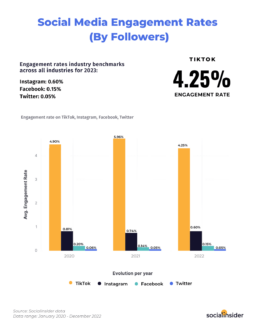Keep The Customer Satisfied
Wouldn’t you really rather know what your customers think of you?
Running a regular customer satisfaction programme is an essential strategy that businesses use to retain and grow their customer base. It’s a process of measuring satisfaction levels by collecting feedback from clients and using those insights to improve your business edge.
Some years ago, the agency I worked for sent me to Havard to learn about customer satisfaction processes designed to improve performance in the service industry. On my return, I implemented what I had learned. As a result, my agency subsequently ran a hugely successful customer satisfaction programme for many years. This survey (conducted twice a year) became a mainstay of our customer service programme.
A customer satisfaction programme enables you to better understand your client’s true feelings about your services. By collecting this feedback, you can identify their pain points and areas of dissatisfaction. You then use this information to adjust your services accordingly. This definitely helps to improve the overall customer experience, leading to increased customer retention, loyalty and advocacy.
But the key point is to gather customer feedback in a way that makes clients feel they can give an honest opinion without upsetting anyone. Consequently, the survey results must be highly confidential and your clients need to be made acutely aware of this. Ideally, a third party should be engaged to run the survey for you. This way, clients felt they are able to be more honest about their levels of satisfaction without directly putting anyone’s noses out of joint. Terra Ferma Media operates exactly this type of customer satisfaction survey for clients, using a slick, online survey tool.
By showing that you care about your clients’ opinions and experiences, you demonstrate that you value them as customers. Again, this leads to increased customer loyalty and advocacy, as well as positive word-of-mouth referrals. Stronger relationships with customers can even provide an opportunity to upsell or cross-sell additional products or services, further driving business growth.
By collecting feedback and using it to improve your offerings, you often differentiate yourself from competitors who may not be listening to their customers. This can help you gain a competitive edge in the marketplace, leading to increased market share and profitability.
But most importantly, a customer satisfaction programme can help you identify and address potential issues before they become major problems. By collecting feedback on a regular basis, you can detect patterns and trends that may indicate underlying issues. Addressing these issues early can help prevent customer churn and negative word-of-mouth, protecting your brand reputation and revenue.
So there we have it; running a customer satisfaction programme among clients is an essential strategy for improving and maintaining your business edge. It’s been a while but Terra Ferma Media is practising what we preach. Our next customer satisfaction survey goes out in early May.
If you would like us to run something similar for your business, just get in touch and we can show you how it’s done.

The Changing Landscape of Twitter: Why it's Becoming Harder for Businesses to Succeed
Here at Terra Ferma Media, we have seen first hand how Twitter has become seemingly less useful for smaller businesses.
One of the biggest reasons for this is the sheer volume of content on the platform, which makes it increasingly difficult to reach your target audience. With millions of tweets being posted every hour, businesses must work harder than ever to stand out and get their message heard. This is especially challenging for smaller businesses with limited budgets, as they may not have the resources to compete with larger, more established brands.
Twitter used to be a staple in the social media strategy for businesses of all sizes, but its effectiveness has been declining in recent years. While there are many factors that have contributed to this decline, one of the most recent is the influence of new owner Elon Musk, who has disrupted Twitter with his unconventional behaviour and unpredictable tweets. With his celebrity status, Musk’s tweets always garner more attention and engagement than those of regular users. However, his unpredictability and tendency to make controversial statements can create a volatile environment for businesses on the platform.
In recent developments, Twitter’s algorithm has evolved to prioritise engagement and relevance, which means that businesses must work even harder to get their tweets in front of their audience. This can be a challenge for new businesses that are trying to build their brand on the platform, as engagement is naturally lower from the start.
Another complication is the rise of advertising on Twitter. While this can be a powerful tool for businesses looking to promote their products or services, it can prove expensive and isn’t always an option for smaller businesses with limited budgets. It is more challenging than ever for businesses to get noticed without spending money on advertising, although that is increasingly the case with all mainstream social media channels. However, other social media platforms such as Instagram, Facebook, and LinkedIn tend to be more effective for businesses to grow and connect with their target audience. Instagram, for instance, has become the go-to platform for businesses that want to showcase their products or services through visual content. Similarly, Facebook’s (Meta’s) advertising tools have made it easier for businesses to reach their target audience based on their interests and demographics. LinkedIn has also become a powerful tool for businesses looking to connect with other professionals in their industry and establish themselves as thought leaders.
And what about the behaviour of some users on Twitter? Trolls and generally abusive accounts are creating a hostile environment for businesses – perhaps more so now that Musk has apparently cut back drastically on moderators. Negative comments and harassment can discourage businesses from engaging with their followers and promoting their brand on the platform, and can sometimes deter new customers.
In conclusion, Twitter has become a more challenging environment for businesses to operate in. While Elon Musk’s takeover has contributed to this, there are many other factors at play, including the volume of content, the changing algorithm, the rise of advertising, negative user behaviour, and the emergence of other social media platforms that are more effective for businesses. To succeed in today’s social media landscape, businesses must be strategic and thoughtful in their approach, focusing on creating valuable content and building authentic relationships with their followers on the platforms that best suit their needs.

How much of a threat is AI to digital marketing agencies?*
Artificial intelligence (AI) could potentially pose a significant threat to digital marketing agencies, as it has the ability to automate many tasks that are currently done by mere mortals.
Some of the ways that AI could impact digital marketing agencies include:
- Automation of content creation: AI-powered tools like ChatGPT can generate written content quickly and with a high degree of coherence, which could make it harder for agencies to justify charging clients for writing services.
- Increased competition: As the cost of using AI-powered tools decreases, more companies may start to use them, which could lead to increased competition for digital marketing agencies.
- Decrease in job opportunities: AI may automate certain tasks that are currently done by human workers, which could lead to a decrease in job opportunities in the digital marketing industry.
- Improved targeting and personalization: AI-powered tools can analyze large amounts of data quickly, which can help companies to target their advertising more effectively and personalize their marketing messages.
- Improved ROI: With the help of AI, companies can make data-driven decisions, optimise their campaigns and get a better return on investment.
However…
It’s worth noting that these potential challenges should be seen as opportunities for digital marketing agencies to adapt and create new services by using new technology.
Some of the most significant opportunities include:
- Improved targeting and personalization: AI-powered tools can analyse large amounts of data quickly, which can help companies to target their advertising more effectively and personalise their marketing messages. This can lead to higher conversion rates and better customer engagement.
- Automation of repetitive tasks: AI can automate repetitive tasks such as data entry, campaign optimisation, and lead scoring, which can help agencies increase efficiency and reduce labour costs.
- Improved ROI: With the help of AI, companies can make data-driven decisions, optimise their campaigns and get a better return on investment.
- Predictive modelling: AI can help predict consumer behaviour, allowing companies to anticipate trends and create more effective marketing strategies.
- Chatbot and voice assistants: AI-powered chatbots and voice assistants can be used to provide 24/7 customer service and automate the sales process, improving customer experience.
- Content Generation: AI-powered tools can help to generate unique and high-quality content in a fraction of the time, which can be used for social media posts, email campaigns, blog posts and more.
With the right skills and approach, agencies can leverage AI to improve their services, increase efficiency, and offer new value to their clients.
*Disclaimer: The above article was entirely written by AI
Here at Terra Ferma Media, we’re not overly concerned about being replaced just yet. As you can see from the content above, this blog post comes across as devoid of personality and fairly mundane, even repetitive. Plus, currently, the most popular AI chatbot service has only gathered data up until the end of 2021. So – asking it to write an article about Rishi Sunak’s role as Prime Minister will draw a huge blank.
Furthermore, apps are being developed (as always) to counterbalance the onslaught of AI chatbots by easily identifying when content has been created by artificial intelligence. There’s even talk that Google Search may soon count identified chatbot content as spam, thus negatively impacting offending website rankings.
So tread carefully when deciding whether to use AI to instantly create your next copy project. There’s still some fight in us humans yet.
Oh, and what’s more, the real world is fighting back: AI image creator faces legal challenges from Getty

GDPR: How we help you
How does GDPR affect the data stored on your website hosted by Terra Ferma Media? Yes, but it's all under control writes David Fernando.
The GDPR deadline (25th May 2018) is almost upon us. Businesses across the EU have been slowly waking up to the notion that certain things need to be in order to be completely compliant with the new legislation. If you haven’t yet got on board with any of this, the best source of information in the UK is the Information Commissioner’s Office (ICO), specifically here.
But how does GDPR affect the data stored on your website hosted by Terra Ferma Media? Don’t worry, we’ve got your back.
"Don't worry, we've got your back"
As the owner of your website, you are what’s known as the controller and owner of your customer data. By working with that data on your behalf, we, Terra Ferma Media is the processor of that data.
Here’s a few other things we’re also doing on your behalf:
- We’ll be writing to those of you who need to update any sign-up forms that may be present on your websites.
- We’ll also flag up to those of you that should have an updated privacy policy on your site (and suggest a sample for you to use which we can then upload).
- If we design and distribute e-newsletters on your behalf, the system we use is already GDPR compliant. However, we do suggest that any customers who have not opened one of your emails for some time be removed from the mailing list.
- If you host your website with us, don’t worry, you’re already covered.
Our hosting partner, WP Engine, is the world’s largest WordPress website hosting specialist, renowned for being tip-top secure (as well as fast, easy to work with and all that other good stuff). On the matter of GDPR, they state,
“WP Engine continually monitors developments in data security, privacy, and compliance around the globe, and we have invested considerable resources in preparing for EU Regulation 2016/679 (“GDPR”) which comes into force May 25, 2018. We have always upheld the core principles behind GDPR, as evidenced by our early adoption of the EU-US and Swiss-US Privacy Shield programs, and take very seriously the trust our customers place in us when they choose to store personal data on our platform.
WP Engine will comply with GDPR’s requirements, both as a controller of our customers’ account data and a processor of the end-user personal data our customers control. In support of our customers’ own compliance efforts, we are updating our privacy terms to reflect the obligations we have as a processor under GDPR. ”
So there you have it. If you host your website through Terra Ferma Media, the data you store will be protected in compliance with GDPR.
This is made even more secure by the fact that all sites hosted with us have SSL certificates, meaning that any data transmitted during the normal operation of your website is encrypted and cannot be accessed by unauthorised 3rd parties.
So whilst there are other areas of your business you will need to audit for GDPR compliance, at least you know that your website, hosted by Terra Ferma Media will be fully compliant.





